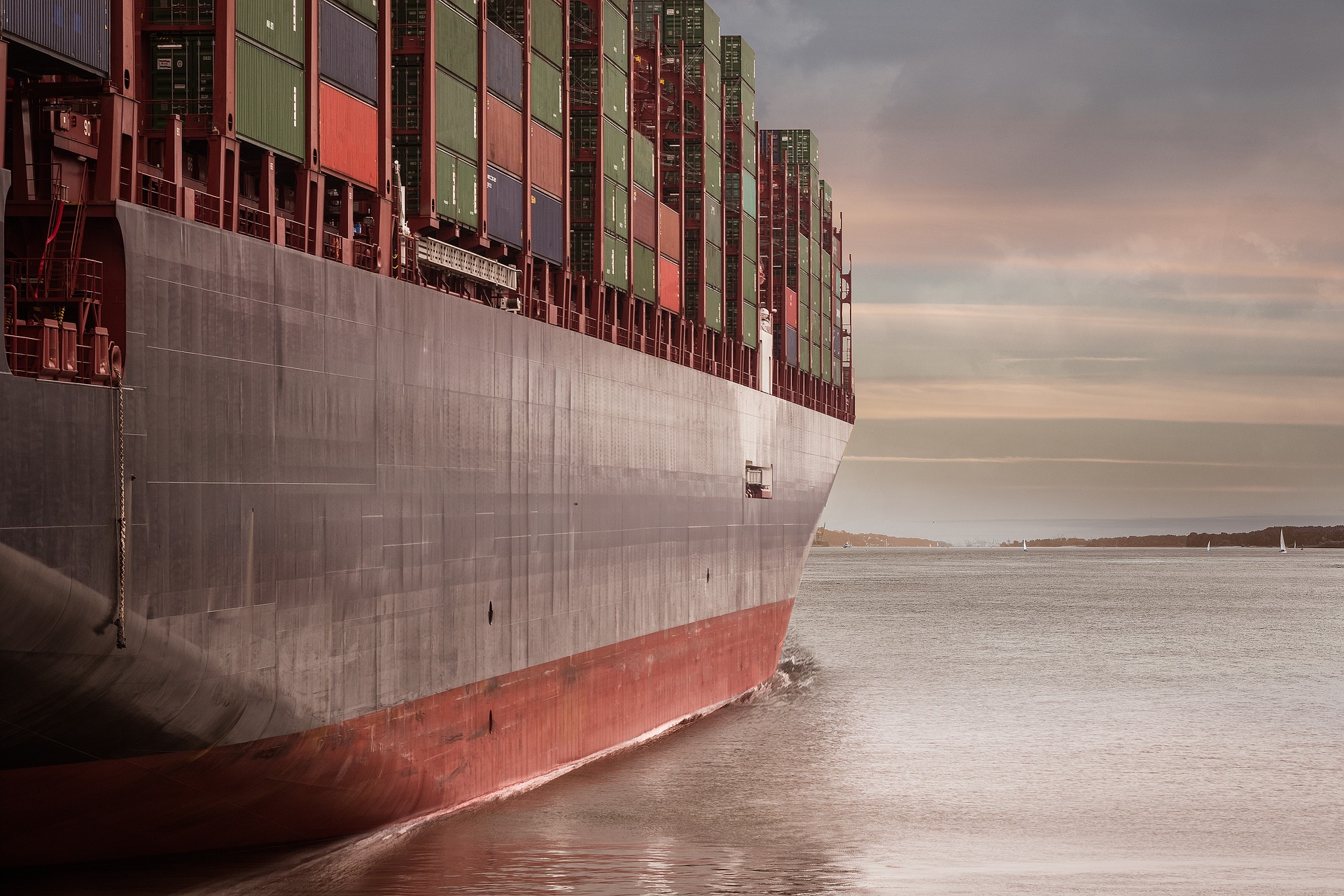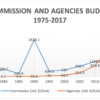Blog Archive

First Impressions of Google AdSense Decision
By Viktorija Morozovaite
The Google AdSense decision has come out on the 20th of March, 2019. With imposition of €1.49 billion fine it marked an end to the third European Commission’s investigation into tech giant’s practices, each resulting in spectacular penalties (together rounding up to €8.2 billion – a sum equivalent to Benelux countries’ annual contribution to the EU budget) and advancing the debate between competition practitioners and academics worldwide. Admittedly, the outcome did not come as a surprise to many – over the past decade, European Commission seem to have become the nemesis of giant tech companies with investigations into practices of Google, Apple, Facebook and Amazon. While the full decision is not published yet and it is difficult to comment on its merits, this blog post aims at distilling some of the ongoing issues, placing the decision in the broader context.
Read more
Brexit and the ways forward for the UK and EU agencies
By Lisette Mustert, Béla Strauss, Miroslava Scholten and Matthew Wood
Brexit raises the question of which way forward for the UK in its relationship with the EU and with EU agencies. For future research and legislative design, this in turn raises a more fundamental question of when which type of agreement between a third country and EU agencies is appropriate, in light of factors such as salience and the interests on both sides. Having analysed all EU agencies’ founding acts, we show in this post that there are three types of formal relationships that exist at this moment between EU agencies and other countries: full membership, observership and cooperation. We argue that the type of this relationship would vary for the UK depending on the score of ‘Brexit salience’, a concept that we introduce. The higher the ‘Brexit salience’ rating is, the more formal the arrangement – full membership or observer – the UK (and the EU) would need to have with an EU agency. According to our scores, this would concern the European Medicines Agency (EMA) and the European Aviation Safety Agency (EASA). In the case of EU agencies that score low on our salience rating, the UK (and the EU) would want to opt for a relatively limited form of cooperation with EU agencies. This would be the case for Cepol, EIGE, ACER, Frontex and CPVO. Surprisingly, the seemingly highly salient agency in the public debate – the European Border and Coast Guard Agency (also known as Frontex) – scores the joint lowest rating. How is this possible, when for the UK immigration is so important during the Brexit vote? It is because, first, our Brexit salience measures do not focus on what is salient in general for the British or European public. Rather, we are concerned with practical matters of policy implementation. As a matter of policy, Frontex has a clear and well-resourced opposite agency – the UK Border Agency – and its operation does not affect a discrete and well-defined policy area.
Read more
Europa versus Trump: hoe de Europese economische soevereiniteit te beschermen tegen Amerikaanse sancties
By Cedric Ryngaert
Premier Mark Rutte hield op 13 februari 2019 zijn veelgeprezen Churchill-lezing in Zürich. In commentaren ging veel aandacht uit naar het door hem voorgestane musculaire Europese buitenlands en veiligheidsbeleid, in het bijzonder naar zijn voorstel om Europese sanctiebesluiten met gekwalificeerde meerderheid mogelijk te maken. Premier Rutte lijkt daarbij ontzag te hebben voor hoe de Amerikanen het aanpakken, wanneer hij zich afvraagt wat we kunnen leren van de veel grotere impact van Amerikaanse sancties in vergelijking met de Europese. Net zoals de VS zou de EU volgens premier Rutte meer bereidheid moeten tonen om ‘marktmacht te koppelen aan politieke doelstellingen en economische belangen’. Het is echter niet de bedoeling dat Europa hiermee ‘de op regels gebaseerde multilaterale wereldorde’ met voeten gaat treden. Net omdat de VS dat met zijn ‘extraterritoriale’ en internationaal onrechtmatige sanctiebeleid weldoet, dient Europa de nodige maatregelen te nemen om het Europese bedrijfsleven en de Europese economische soevereiniteit tegen de Amerikaanse sancties te beschermen.
Read more
Appointment of EU agency directors
EU agencies’ number and powers have grown tremendously in the recent years. Despite the so-called Meroni ‘non-delegation’ doctrine, EU agencies perform a wide range of tasks. They can contribute to or pass (soft) rules of general applications and impose sanctions for violation of EU laws vis-à-vis private actors (Scholten and Luchtman 2017). The increase of powers and hence impact of EU agencies on society raises the urge for legitimising these institutions. One of the major ways to legitimize institutions is establishing proper governance structures and ensuring suitable top-level officials who manage agencies and bare responsibility for agencies’ performance. In this blog post, we offer a comprehensive evaluation of EU agency directors’ functions and appointment procedures and requirements. We show that the appointed directors fit the profiles of EU agencies that they head well, nevertheless we quest the necessity of the existing excessive variety of appointment procedures (12!), which in our view hinders legitimacy.
Read more
The European Production Order – Tackling the Problem of Enforcement Jurisdiction and Extraterritoriality in Cyberspace
 On April 17th, 2018, the European Commission proposed new legislation to facilitate and accelerate access to digital evidence across borders in criminal investigations. The proposal aims at providing enforcement authorities with new tools for cross-border investigations in the digital era. European Production and Preservation Orders (the Orders) would allow law-enforcement authorities of a Member State to compel service providers – both domestic and foreign – offering services in the European Union to disclose or preserve user data, regardless of the data’s location. With this proposal, the European Commission moves away from territoriality as the determinative factor for enforcement jurisdiction in cyberspace. Thereby it could possibly set an international precedent to modernize international law in the area of transborder access to e-evidence.
On April 17th, 2018, the European Commission proposed new legislation to facilitate and accelerate access to digital evidence across borders in criminal investigations. The proposal aims at providing enforcement authorities with new tools for cross-border investigations in the digital era. European Production and Preservation Orders (the Orders) would allow law-enforcement authorities of a Member State to compel service providers – both domestic and foreign – offering services in the European Union to disclose or preserve user data, regardless of the data’s location. With this proposal, the European Commission moves away from territoriality as the determinative factor for enforcement jurisdiction in cyberspace. Thereby it could possibly set an international precedent to modernize international law in the area of transborder access to e-evidence.

‘De platformeconomie kan (nog) zonder algoritmewaakhond’
Prof. Anna Gerbrandy schreef voor NRC een column over algoritmes en de noodzaak een nieuwe toezichthouder op te richten. De column is hier te vinden.
Read more
The external effects of the EU’s regulation of sulfur dioxide (SOx) emissions
 On 10 November 2017, I had the honor to be the sole opponent for the (successful) public defense of Philip Linné’s doctoral thesis on ‘Regulating vessel-source air pollution: standard-setting in the regulation of SOx emissions’, at Gothenburg University (Sweden). The thesis concerns the regulatory response, at different scales, including notably the EU scale, to tackle the environmental and human health impacts caused by sulfur oxide (SOx) emissions from the exhausts of seagoing ships. In this post, I reflect on the international legality and especially the external effects of relevant ‘unilateral’ EU action to tackle SOx emissions, i.e., action that goes beyond what is required by international law. Building on, but also adding to Philip Linné’s insights, I argue that by taking unilateral action, the EU has accelerated the calendar for strengthening global environmental standards in respect of SOx emissions.
On 10 November 2017, I had the honor to be the sole opponent for the (successful) public defense of Philip Linné’s doctoral thesis on ‘Regulating vessel-source air pollution: standard-setting in the regulation of SOx emissions’, at Gothenburg University (Sweden). The thesis concerns the regulatory response, at different scales, including notably the EU scale, to tackle the environmental and human health impacts caused by sulfur oxide (SOx) emissions from the exhausts of seagoing ships. In this post, I reflect on the international legality and especially the external effects of relevant ‘unilateral’ EU action to tackle SOx emissions, i.e., action that goes beyond what is required by international law. Building on, but also adding to Philip Linné’s insights, I argue that by taking unilateral action, the EU has accelerated the calendar for strengthening global environmental standards in respect of SOx emissions.

‘EU Agencies’ label: to what extent should we treat them all as ‘one’?
Twenty years ago, Alexander Kreher wrote one of the first articles on EU agencies arguing for the growing importance of this ‘institutional phenomenon’, which was almost completely ignored within the academic literature of that time. Judging from the countless number of academic articles and the tremendous growth of the cumulative budget (via-s-via the Commission, see Figure 1), it seems that the importance of EU agencies has only grown. The emevelopment in researching and governing EU Agencies has gone from gathering the somewhat scattered creations of agencies in different policy areas, under different treaty provisions, with different powers and for different purposes, etc. to bringing them under one ‘EU agencies’ umbrella as part of the EU executive machinery distinct from the EU Commission. Indeed, EU agencies have been treated as an ensemble for the budgetary purposes, also at the European Parliament, where the practice of three agencies’ directors would defend budgetary proposals on behalf of all ‘EU agencies’. We have seen the creation of the ‘Common Approach’ and later a roadmap with a view of streamlining the creation and revision of the founding acts of EU agencies. Furthermore, EU agencies’ directors have organized themselves in a network of agencies’ directors to discuss common challenges. To what extent, however, should we treat them as one?
Read more
“Noem het bij de naam: de Europese Politieke Unie komt eraan”
Renforce-onderzoeker Ton van den Brink schreef voor NRC een column over de hervormingsvoorstellen van de Europese Commissie.
“De omvorming van de Europese Economische en Monetaire Unie (EMU) in een echte politieke unie? Wat lang ondenkbaar leek, zou nu toch zomaar kunnen gebeuren.
De plannen voor hervorming die nu op tafel liggen zijn weliswaar bescheiden, maar niettemin onmiskenbare stappen in die richting. Ze geven EU instellingen rechtstreeks grip op economisch beleid in de lidstaten en leiden tot meer ruimte voor politieke belangenafweging.
Nu dreigt het gevaar dat de hervormingsplannen alleen worden beoordeeld op hun praktisch nut, als oplossingen voor de huidige problemen van de eurozone. Het debat, zeker ook in Nederland, zou in plaats daarvan juist over de transformatie naar een politieke unie moeten gaan. Anders ontstaat later gemakkelijk het beeld dat de EU ons de politieke unie heeft ingerommeld.”
Lees de volledige column bij NRC.
Read more
Verkiezingen 2017: staat de aanbesteding op de kaart?
 Door Willem Janssen & Laura de Vries
Door Willem Janssen & Laura de Vries
Op 15 maart 2017 gaat Nederland naar de stembus. Het beloven interessante Tweede Kamerverkiezingen te worden. De economie, werkgelegenheid, immigratie en EU zullen daarin waarschijnlijk een belangrijke rol gaan spelen. Dit blijkt ook uit de – veelal erg lijvige – verkiezingsprogramma’s van politieke partijen. Ook aanbestedingen komen daarin met regelmaat terug. In deze bijdrage geven wij een overzicht van de standpunten en voorstellen met betrekking tot aanbestedingen. Wij beperken ons tot de verkiezingsprogramma’s van partijen die in de recentelijke peiling van Ipsos het grootste waren (50plus, CDA, ChristenUnie, D66, GroenLinks, PvdA, PvdD, PVV, SGP, SP, VVD).
Read more
